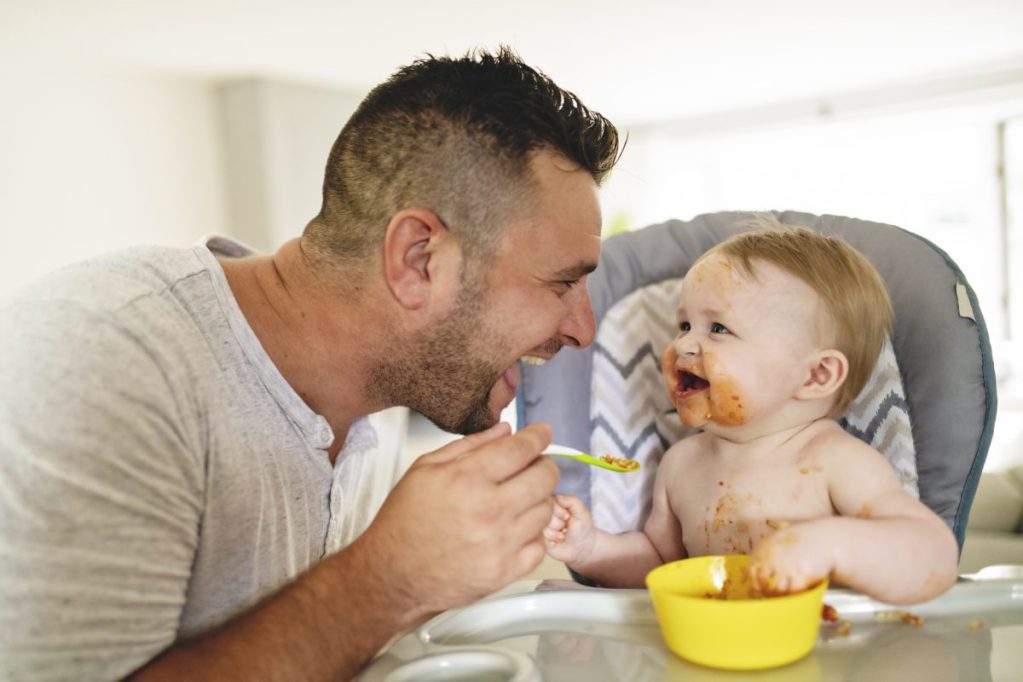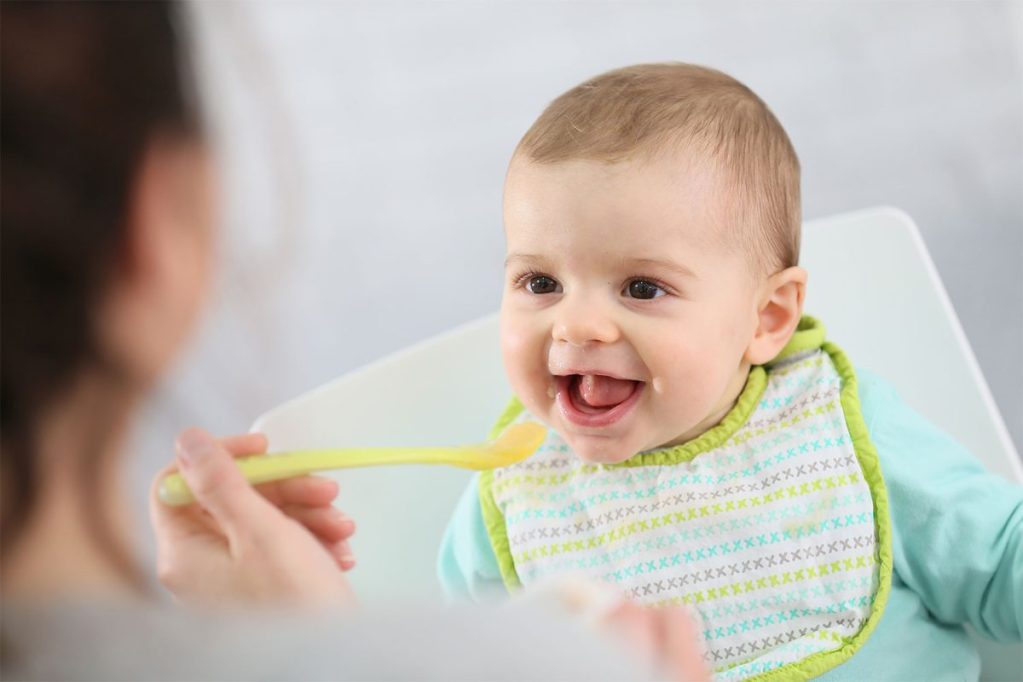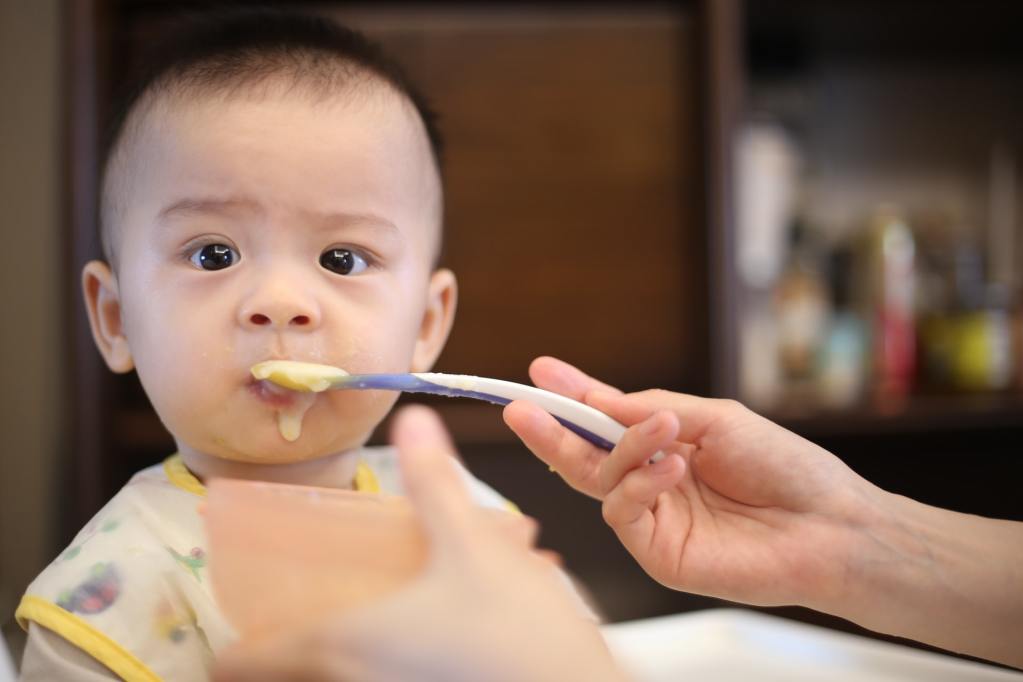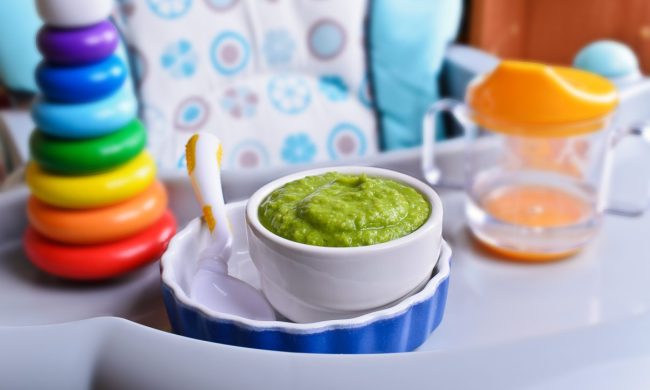Many parents find it confusing to know when their baby can start eating baby food. Everyone seems to have an opinion about when babies need to start on solid foods, and that can often mean that parents, especially first-time ones, hear a lot of misinformation and feel pressure to feed their babies baby food before they’re ready.
Because every baby is different, there is no exact time when babies should start eating baby food, but there are some guidelines to follow to ensure your little one is ready. Keep reading to answer the question, “When can babies eat baby food?”

How do I know my baby is ready for baby food?
The general rule, when it comes to introducing solids, is to wait until your baby is approximately 6 months old. Some babies may start earlier, but The American Academy of Pediatrics (AAP) doesn’t recommend giving any baby younger than 4 months old solid foods. Fortunately, your baby will start to give you some clues with their behavior that means they’re ready to move on from their diet of breastmilk or formula and add something more substantial.
Your baby is developmentally ready to try baby food when they can sit up and control their head and neck and physically when they are about double their birth weight. They may also show you that they’re interested in food by opening their mouth or watching when others eat, as well as bringing objects to their mouth.

How to introduce solid foods
The most important thing about introducing solid foods to your baby is to follow their lead. If you choose a single-grain cereal as their first food, make sure it’s properly pureed to avoid any potential choking hazards. The AAP warns against adding cereal to your baby’s bottle because it is a choking hazard and can cause your babe to gain too much weight. It suggests introducing a new food to your baby every three to five days. This allows you to watch for any reactions your little one may have to one food before introducing something new.
If your baby is frustrated or rejects the food, don’t force them to continue eating. There’s nothing wrong with stopping solids for a short while before trying again. If they try a food that they don’t seem to like, stop feeding them and wait a while before reintroducing it. Babies will sometimes need to be exposed to different flavors and textures more than once before they decide they enjoy it.

What about common allergy-causing foods?
It can be very a nerve-wracking experience for parents when it comes to introducing certain foods, such as peanuts, eggs, and seafood just to name a few. There is no proof that delaying the introduction of these foods will help prevent allergies, but if your baby has severe eczema, your pediatrician may want to test for a peanut allergy first. If you’re concerned your baby may be at risk for a food allergy, always speak to your doctor about how to proceed — when and how — when introducing these foods.
If you’re ever concerned about when to start solids, don’t hesitate to reach out to your pediatrician for advice, especially if you have concerns about food allergies. It’s always exciting to introduce your baby to new foods and watch as they grow and explore a variety of tastes and textures. Go slowly and enjoy this developmental milestone!




